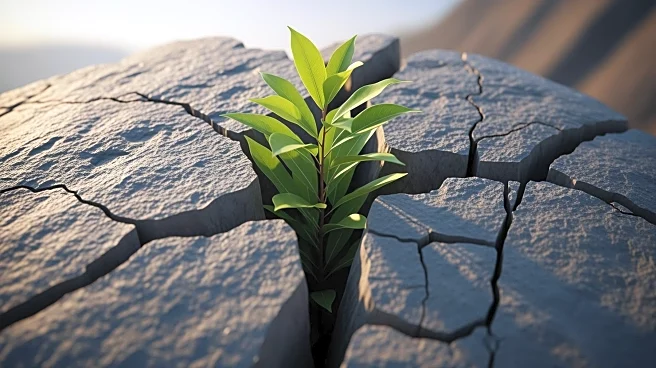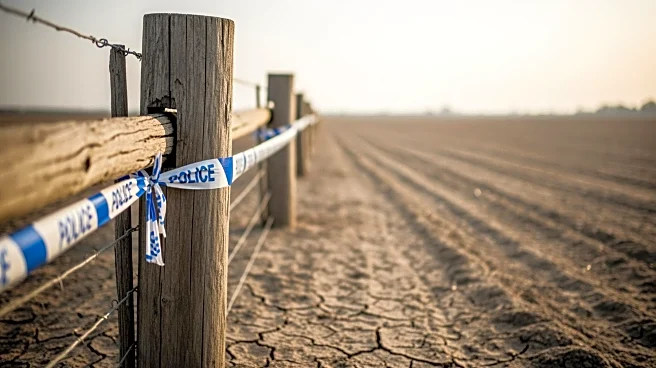What's Happening?
Climate Rights International (CRI) has called for immediate reforms in the Philippine nickel mining industry, highlighting significant environmental destruction and human rights abuses. The advocacy group has urged the Philippine government, mining companies,
and downstream users, including electric vehicle and battery manufacturers, to address these issues. The Philippines, as the world's leading exporter of raw nickel ore, faces severe consequences, particularly in the Caraga Region, home to 23 operating nickel mines. The report 'Broken Promises: Philippines Nickel Mining Causes Rights Abuses and Increases Climate Vulnerability' documents deforestation, water contamination, and loss of livelihoods in areas like Dinagat Island and Surigao del Sur. CRI emphasizes the need for mining companies to remedy pollution and properly dispose of waste, while urging government agencies to enforce and strengthen regulations.
Why It's Important?
The call for reform in the Philippine nickel mining industry is crucial due to its global significance in the supply chain for electric vehicles and batteries. The environmental and social impacts of nickel mining, such as deforestation and water pollution, exacerbate climate vulnerability and harm local communities. As the demand for nickel continues to rise, particularly for green technologies, the pressure on mining practices to become more sustainable and ethical increases. Companies sourcing nickel from the Philippines are urged to leverage their market influence to demand cleaner operations, aligning with global efforts to combat climate change. This situation highlights the need for responsible sourcing and accountability in the supply chain, impacting both local communities and international stakeholders.
What's Next?
The advocacy by CRI may lead to increased scrutiny and pressure on both the Philippine government and international companies involved in the nickel supply chain. Government agencies might face demands to enforce stricter environmental regulations, while mining companies could be compelled to adopt more sustainable practices. Electric vehicle and battery manufacturers may need to reassess their sourcing strategies to ensure compliance with ethical standards. The ongoing dialogue could result in policy changes and industry shifts towards more responsible mining practices, potentially influencing global supply chain standards.
Beyond the Headlines
The situation in the Philippine nickel mining industry underscores broader ethical and environmental challenges in global supply chains. It raises questions about the balance between economic development and environmental stewardship, particularly in resource-rich developing countries. The advocacy for reform may also spark discussions on corporate responsibility and the role of international buyers in promoting sustainable practices. Long-term, this could lead to shifts in industry norms and increased emphasis on transparency and accountability in resource extraction.














